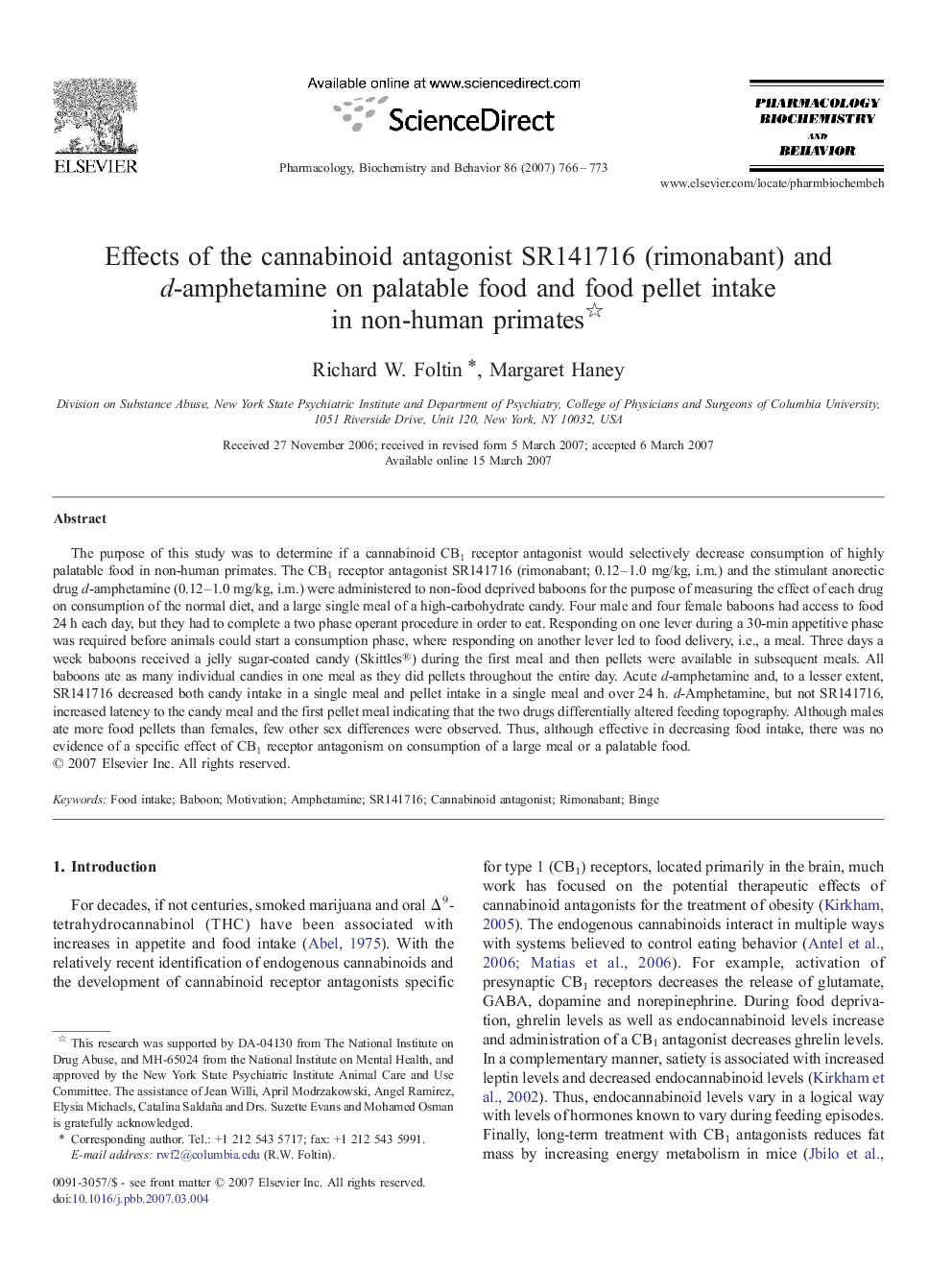| Article ID | Journal | Published Year | Pages | File Type |
|---|---|---|---|---|
| 2013960 | Pharmacology Biochemistry and Behavior | 2007 | 8 Pages |
The purpose of this study was to determine if a cannabinoid CB1 receptor antagonist would selectively decrease consumption of highly palatable food in non-human primates. The CB1 receptor antagonist SR141716 (rimonabant; 0.12–1.0 mg/kg, i.m.) and the stimulant anorectic drug d-amphetamine (0.12–1.0 mg/kg, i.m.) were administered to non-food deprived baboons for the purpose of measuring the effect of each drug on consumption of the normal diet, and a large single meal of a high-carbohydrate candy. Four male and four female baboons had access to food 24 h each day, but they had to complete a two phase operant procedure in order to eat. Responding on one lever during a 30-min appetitive phase was required before animals could start a consumption phase, where responding on another lever led to food delivery, i.e., a meal. Three days a week baboons received a jelly sugar-coated candy (Skittles®) during the first meal and then pellets were available in subsequent meals. All baboons ate as many individual candies in one meal as they did pellets throughout the entire day. Acute d-amphetamine and, to a lesser extent, SR141716 decreased both candy intake in a single meal and pellet intake in a single meal and over 24 h. d-Amphetamine, but not SR141716, increased latency to the candy meal and the first pellet meal indicating that the two drugs differentially altered feeding topography. Although males ate more food pellets than females, few other sex differences were observed. Thus, although effective in decreasing food intake, there was no evidence of a specific effect of CB1 receptor antagonism on consumption of a large meal or a palatable food.
